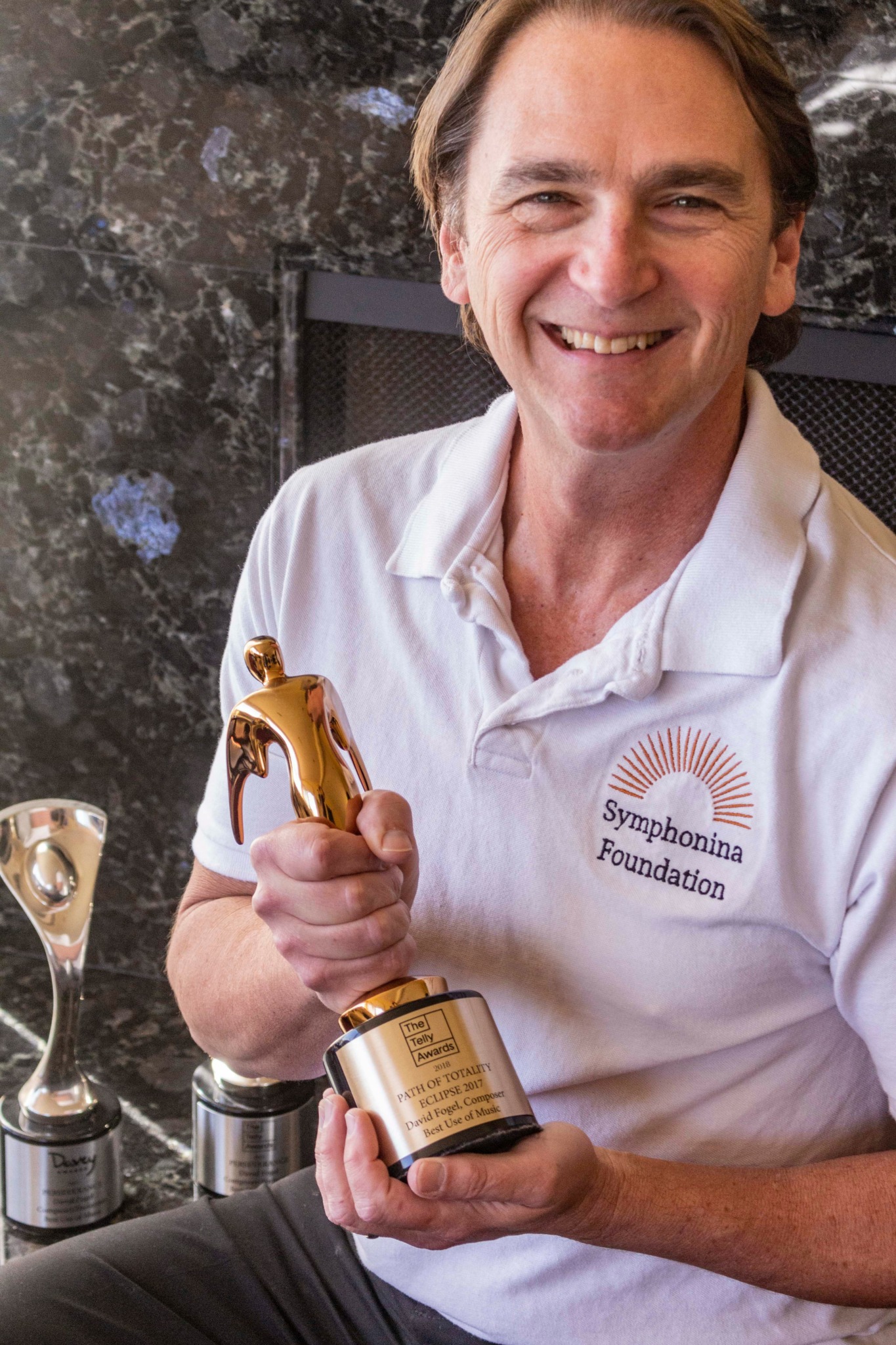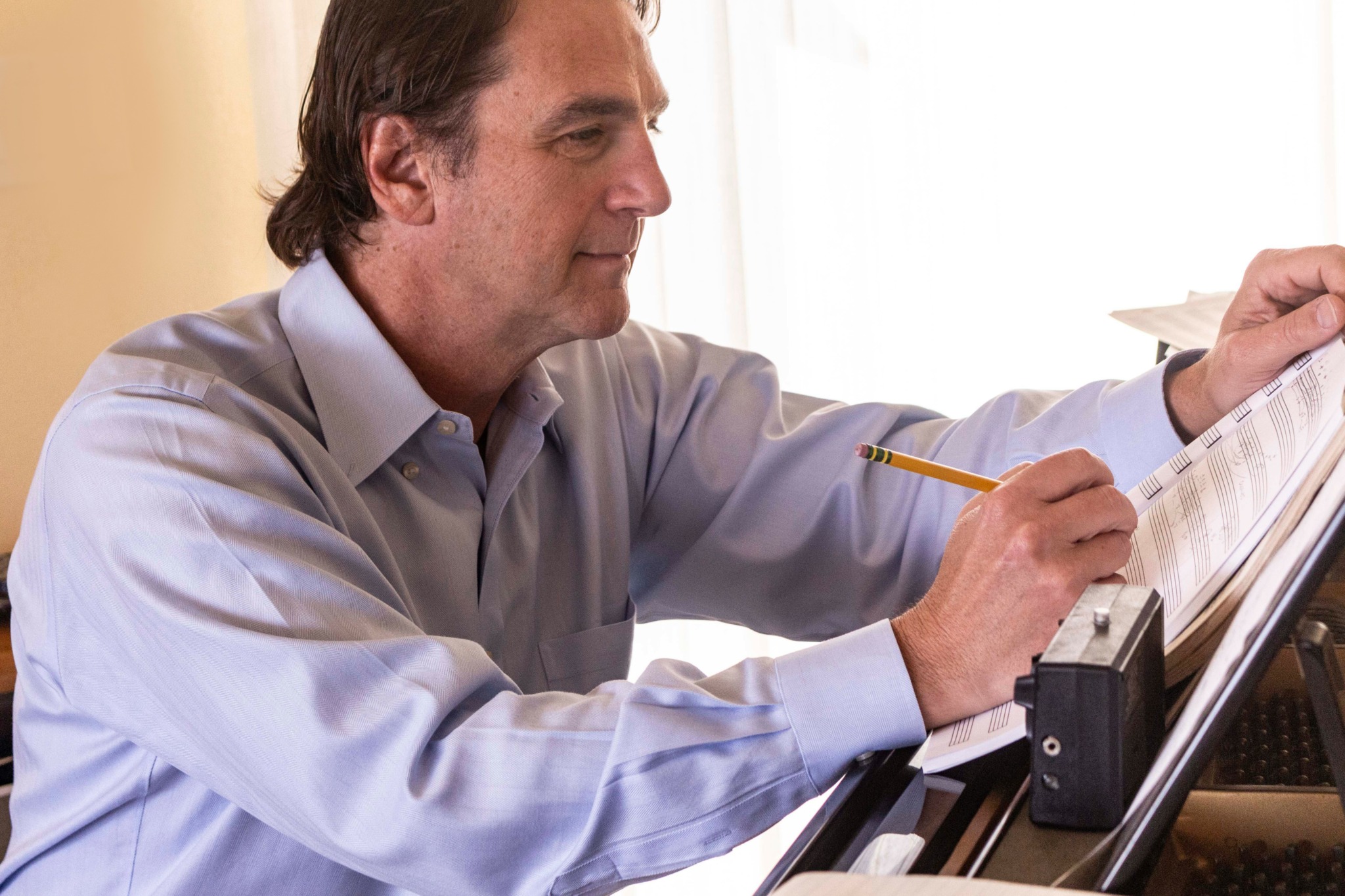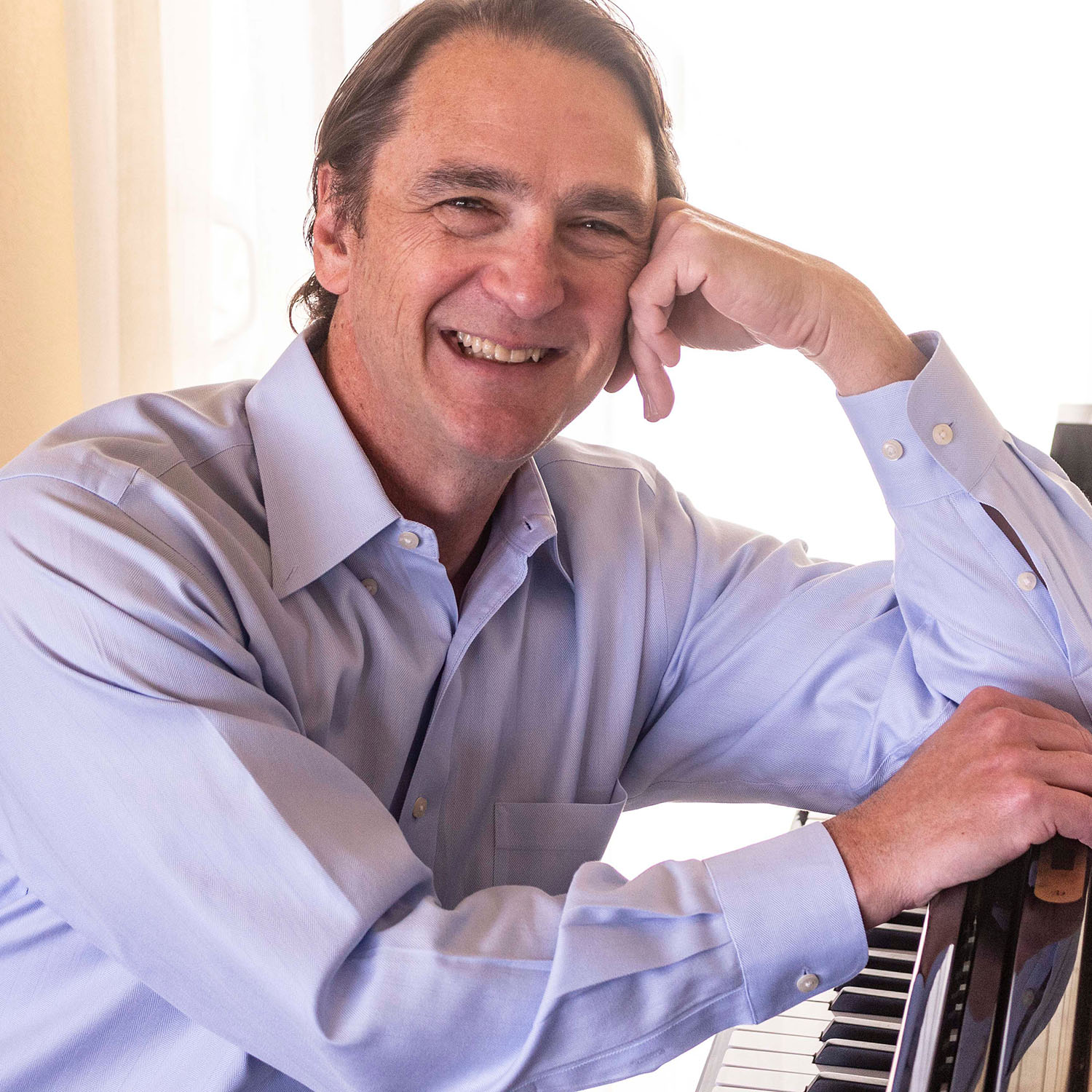We caught up with the brilliant and insightful David Fogel a few weeks ago and have shared our conversation below.
David, thanks for joining us, excited to have you contributing your stories and insights. It’s always helpful to hear about times when someone’s had to take a risk – how did they think through the decision, why did they take the risk, and what ended up happening. We’d love to hear about a risk you’ve taken.
Seven years ago, on a Sunday afternoon, I went to a performance of the San Diego Symphony. I arrived a bit early and looking around, I saw I was pretty much the youngest person in the audience. I was 54! I started thinking where is everyone going to be in 20 years, and even more importantly, where are the young people? When I was younger I went to the symphony, and when I was really young, my parents took me, and we had school field trips. But not so much any more. I felt this was unacceptable.
With some research, thought, and common sense, I concluded that most people listen to music streaming on their phone, While rock, pop, country, and other genres have done a good job of transitioning to that sort of streaming, classical or symphonic music really hasn’t. Symphonies and other works can be long, and it it seems that everyone’s attention spans have grown shorter since the smartphone has found a way to interrupt us continually. So my thought was along these lines. In classical piano we have sonatas and sonatinas — shorter sonatas. Why not have shorter symphonies? So I called them “Symphoninas” — short complete symphonies that play in about 10 minutes, never longer than 12 minutes, with 3 or 4 melodic movements, each playing in about the same length of time as a typical streaming tune. I started writing Symphoninas and people enjoyed them. So I decided two things.
First, if this was really going to have an impact to change the world, it has to be more than just me writing new Symphoninas, and second there needs to be a non-profit organization behind the movement to spread the joy of symphonic music to young audiences and the world — and really older audiences too. So I took a risk and invested in a labor of love in creating The Symphonina Foundation as a 501(c)(3) nonprofit with that mission. A colleague Gary Gray serves as co-founder, and we now have several advisors, including award-winning composer Daniel Fisher, and 3-time Grammy(R)-winning flutist Wouter Kellerman.
The Symphonina Foundation now has engaged audiences with annual releases of new Symphoninas, with our 2024 album, Advent of the Symphonina reaching #1 on Billboard. The organization sponsors an annual composer contest with prize money and the winning entries are recorded with live orchestra for the album. In addition, we’ve created our own orchestra, The International Symphonina Orchestra, comprising players from around the world who record separately and then I do the mixing to have them perform as one orchestra. This gives young aspiring professionals the opportunity to record with established artists who are already playing with well-known symphony orchestras. We also started a podcast to have conversations with people in the symphonic world — everyone from Grammy(R) winners to students have something important to contribute. Our current album, ASCENSION: SYMPHONINA RISING had two compositions nominated for best contemporary classical at the 2025 Hollywood Independent Music Awards, with Daniel Fisher being selected as the winner.
As we grow and expand the opportunities for everyone to enjoy symphonic music, we’re looking to continue our success in these areas and collaborate with other like-minded people and organizations who value the symphonic arts and what they have to offer all of humanity.
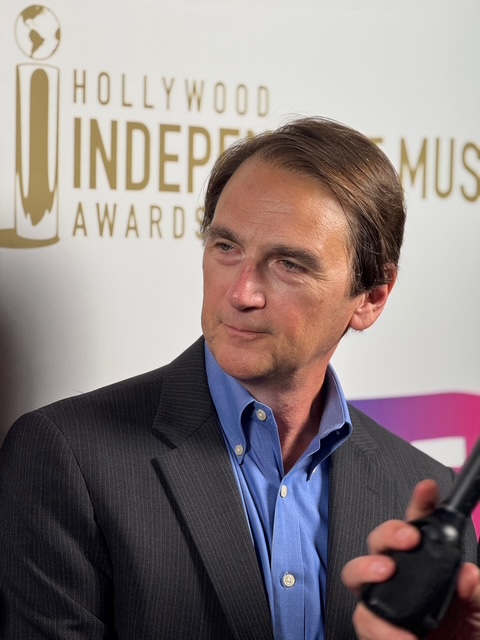
Great, appreciate you sharing that with us. Before we ask you to share more of your insights, can you take a moment to introduce yourself and how you got to where you are today to our readers.
I came from a very musical family. My dad, who passed away in 2007, was a multi-instrumentalist, playing piano, sax, clarinet, and flute, and some other instruments as well. My mom, who is still with us, played piano and harpsichord. So I was introduced to music very early. I began piano lessons at age 5 from my dad’s mom, who was a classically trained pianist, and eventually started on sax and guitar as a child as well. In college, I pursued math and later engineering but always played something. In 1994, I lucked into a piano gig at the Catamaran Hotel in San Diego, playing 1-2 times per week for 16 years. That was a great experience and a real joy to be able share music with the public, while sometimes also having my dad sit in on tenor sax. Those were golden days of contemporary jazz, and so many great artists were a significant influence starting with David Benoit, The Rippingtons, Eric Marienthal, Dave Koz, Gerald Albright, Kirk Whalum, Dave Grusin, Gregg Karukas, and so many others.
In 2017 I began formally composing orchestral works and that, combined with my experience at the San Diego Symphony, was the impetus for starting to compose Symphoninas. I’ve listened to an immense amount of orchestral work. Not as much as many other people, but really quite a lot, and this was instrumental, if I can borrow that word, in serving as a foundation for orchestral composition. Also very important were my later piano teachers Donna Clitsome (classical) and Gene Hartwell (jazz). I tried to learn as much as I could from each, and miss them both.
In terms of things I’m proud of, pride is a funny word to use as I don’t really think of things that way. I’m most happy when I’m helping others. Writing a great piece of music is only really as rewarding as the audience’s response. I remember a good anecdote here. One night, my dad was sitting in at the Catamaran Hotel for another piano player and I came by to listen. I was sitting at the table right next to the piano and at this time it turned out there was only one customer in the bar sitting pretty close as well. My dad finished playing Autumn Leaves and then asked the gentleman what he’d like to hear. The gentleman thought for a minute and then said “Autumn Leaves would be nice.” My dad and I looked at each other and smiled, and he went right back to playing Autumn Leaves again, which made the man happy. And it made my dad happy, and me too. Many others in that situation would have said something to the effect of “I just played that, choose something else,” but it’s not about yourself in those settings. That’s something I really take to heart.
With The Symphonina Foundation, our goal really is to change the world — to make it a better place through more accessible symphonic music. I checked a couple of years ago and I recall the Nielsen ratings had classical music at 1% market share in the USA. I’m not sure they do fractions. So from my perspective, we have a lot of work to do and a lot of room to grow! I know intrinsically that very many people enjoy symphonic music but don’t have an opportunity to experience it much, except in film and video games. We’re very optimistic that Symphoninas will serve as a new genre of symphonic music to help it become more accessible and lead to greater appreciation of symphonic music generally. Just from our composer contests, there have been more than 80 Symphoninas created in the last 4 years, and we’ve released over 2 hours of new great symphonic music on our albums. I’m hopeful too that our foundation will continue to provide these opportunities for today’s great new composers. The classics are wonderful — I love Mozart, Beethoven, Tchaikovsky, and so on — but we have brilliant composers today and it would be great to give them more opportunity to be heard and appreciated.
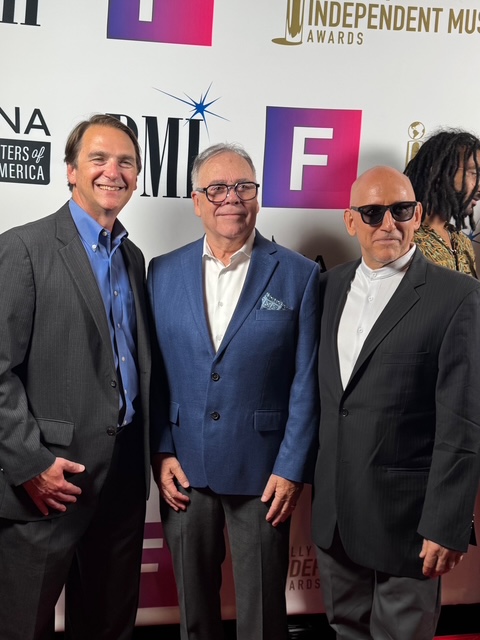
What do you find most rewarding about being a creative?
The most rewarding aspect of being a composer and musician is being able to relate things in music that cannot be said sufficiently with words. “Words can only get you so far. For the rest you need music.” I love helping others learn about music or learn to play music or simply to learn about other musicians. Creativity spurs more creativity! I’ve had a lot of joy from telling someone that they’ve won our composer competition and their music will be recorded live and put on our annual album. I’ve also had a lot of fun teaching a young person how to begin with the saxophone. There are so many ways to find joy in music.
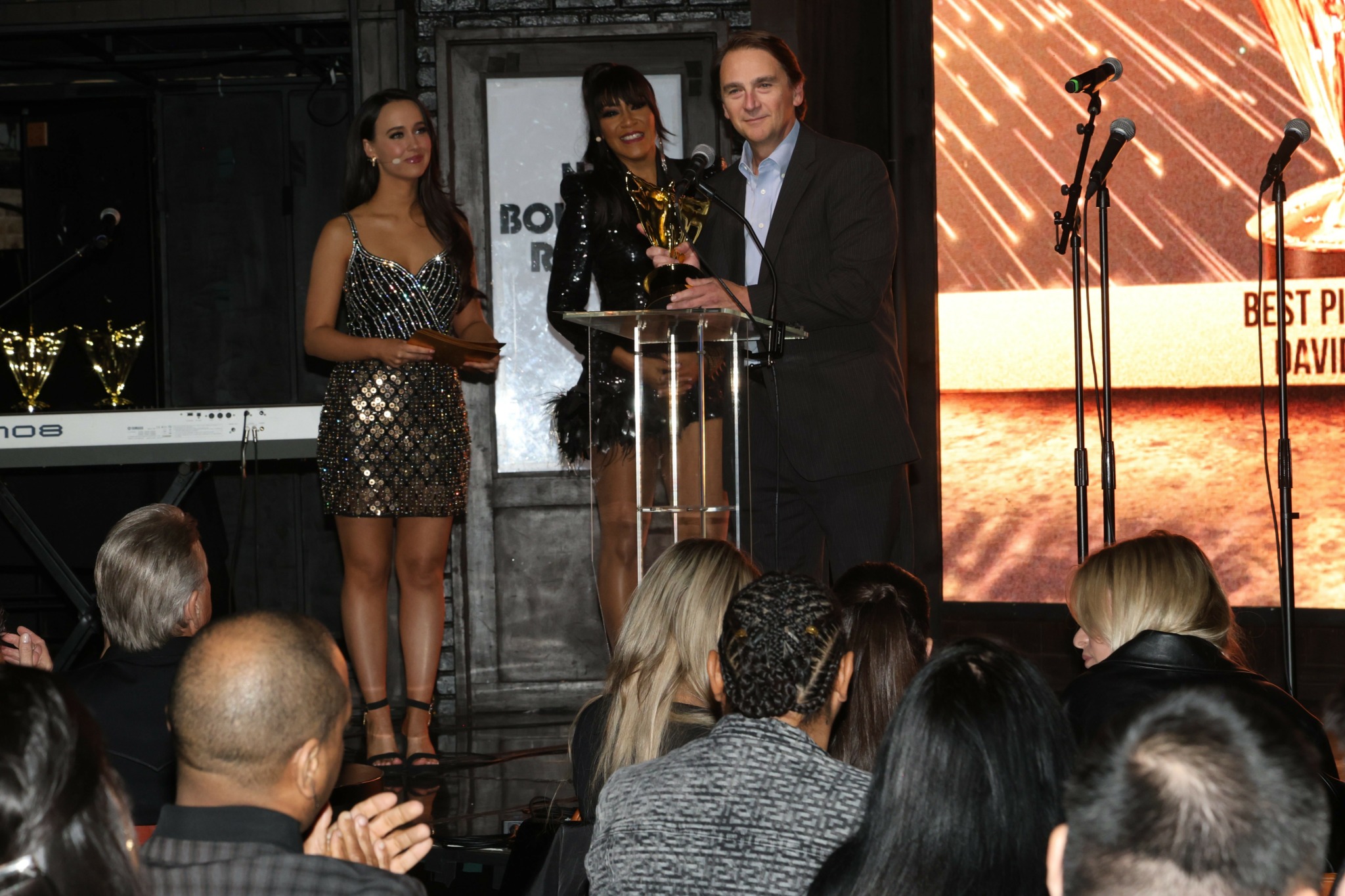
In your view, what can society to do to best support artists, creatives and a thriving creative ecosystem?
Looking for the “best” support is probably not really necessary! Just “good” support is awesome. Here are some things that come to mind. First, go see live music. Find out where music is being played and go support the musicians and let them know personally that you appreciate them. Second, if you’re inclined follow their social media, post encouraging things, and even consider buying their merchandise. I don’t sell any merchandise personally — at least not yet — so don’t look for any David Fogel t-shirts — but all these things help the musician to give everything back to you. Third, keep in mind what the future of music creation looks like when AI takes over, as it is doing already. For me, art is about our humanity, and I would prefer listening and supporting a fellow artist rather than a robot, even if they were to create the same music. At this point, one is telling a story and the other is creating something along the lines of telling someone’s else’s story without even understanding that a story is being told. I’m hopeful that in the future any music created using generative AI will be labeled that way, so we can all know what we’re consuming, just as we might look at the label on something we’d buy at the grocery store.
Contact Info:
- Website: https://symphonina.org
- Instagram: https://www.instagram.com/davidbfogel/
- Facebook: https://www.facebook.com/david.fogel.737/
- Youtube: https://www.youtube.com/@thesymphoninafoundation3199
